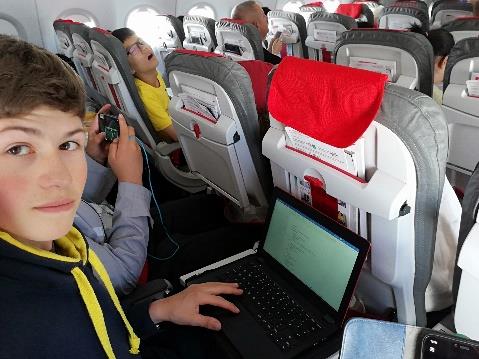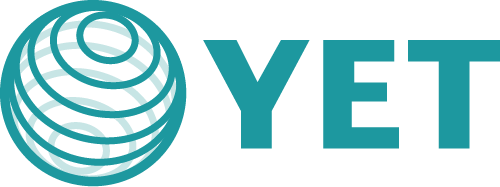
The Kayak Drina expedition (13-22 July 2019) completed its aim of gaining a better understanding of some geographical and human factors around Balkan rivers. This expedition report to tells the story of the expedition, summarises our research findings and provides a planning framework for future kayaking expeditions to the region.
Locational context
The River Drina marks the border between Bosnia and Serbia, two countries located in the Balkan Peninsula in South-eastern Europe. Independent entities since 1992 and 2006 respectively they have lived through troubled times. Since pre-Roman times their geographical location has resulted in conflict with, and ruling by, several different empires. This background has produced a fascinating culture: a unique blend of Eastern and Western influence; Christian and Islam beliefs; and a culture of kindness towards strangers granted us access to many personal insights to the region in a way not seen elsewhere in Europe. ‘There are many sides to every story’.
The team
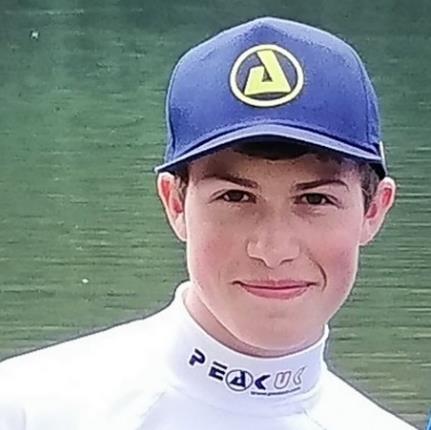
Joe McDermott, expedition leader
Plans to study: Geography
Expedition studies: What’SUP with the Drina?/ Expedition Psychology
Joe is a keen kayaker with performance qualifications as well as experience coaching and leading trips. Keen to improve local waterways, he is working with British Canoeing to reduce plastic pollution & increase access to his local river. He has led several expeditions and is a fellow of the Young Explorers’ Trust.

Ollie Marval, second-in-command/team medic
Plans to study: Geography and Economics
Expedition study: Invasive Mosquitoes
Oli is a keen geographer and has expedition experience. Also a kayaker; he holds the British Canoeing Paddle Power Passport qualification and in 2017 participated in a six-day canoeing expedition on the Wye. Oli has basic first aid knowledge with a medical father and a First Aid at Work qualification.
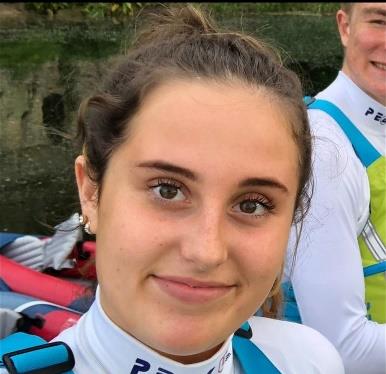
Maddie Vaughan, cultural immersion
Plans to study: International relations
Expedition study: The Youth of Former Yugoslavia
Maddie has a strong interest in global issues, particularly conflict and poverty. She is involved with refugee integration projects and has worked with the homeless in Derby. These experiences have given her first-hand experience of the destructive impacts these issues can have on people’s lives.
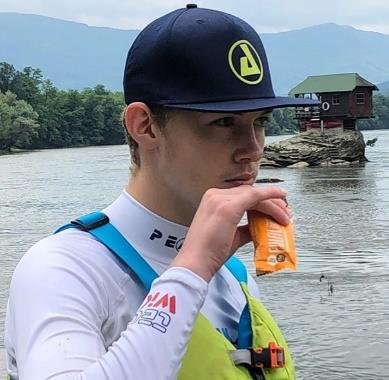
Finn Hope, training
Plans to study: Geography
Expedition study: Heavy Metals in the Balkans
A passionate geographer, with expedition experience. Finn walked across England and sailed the Azores to Ireland; however this was his first research expedition. A strong kayaker, he has represented Midland Canoe Club at slalom, as well as competing in sea kayaking races off the coast of Ireland.

Robbie McDermott, support crew
Robbie (Joe’s dad) has previous experience of working in Bosnia and Serbia. He is a practicing GP, Mountain Leader and has led expeditions himself.
Training
The team’s training schedule throughout the months before the expedition was vital in making sure everyone was prepared for the challenges we would face.
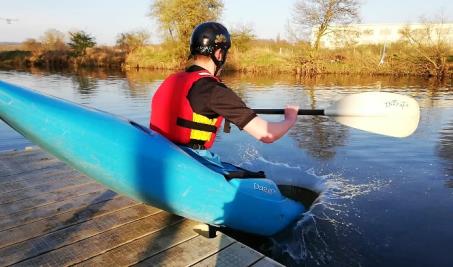
We conducted 3 kayaking training sessions, lead by Finn, at the Midland Canoe Club. These were based around the British Canoeing 2* syllabus to ensure we all met the basic paddling requirements of for the expedition. This included; paddling technique, kayaking as doubles and rescues in the event of a capsize. These sessions proved invaluable preparation for the more technical sections of the fast-flowing River Drina.
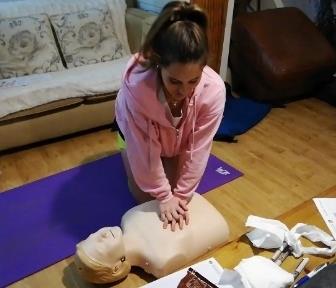
First aid was an essential element of training. As team medic, Ollie organised group training with his father, an anaesthetist, during which we covered primary survey and expedition specific injuries. This included burns, cuts, breaks, drowning and avoiding infection (from water). In addition, Ollie produced laminated flashcards with a flowchart of our emergency procedure and phone numbers of the closest hospitals which we carried with us at all times in our buoyancy aids.
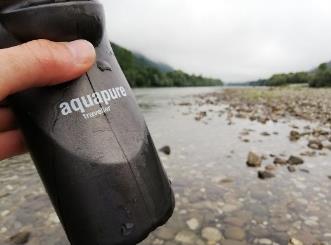
Water filtration was another part of our training. We arranged training on how to use our sponsored Aquapure Traveller bottles with John Saunders of Pure Hydration (www.purehydration.com). We learned to correctly use our filters, what to look for when selecting sites and good practice. This enabled us to always have enough drinking water without having to carry copious amounts at any one time. The training was exceptional.
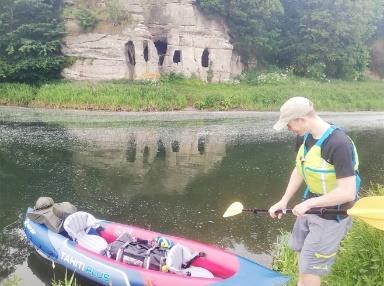
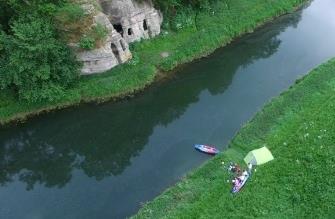
The rehearsal included practise using the drone
The final, but most important, element of training was a rehearsal on the River Trent. This took place over 2 days and a night to replicate the days and nights we would spend on the Drina. On the first day we paddled for roughly two hours before arriving at our destination and setting up camp. In the evening we set up our tent, cooked dinner and rehearsed data collection for our studies. The next morning we packed up and paddled for another two hours before reaching our finish point. The debrief form the rehearsal The rehearsal included allowed us to address issues with kit, timings and research methods to practise using the drone ensure the final plan would survive contact.
Cultural immersion
Cultural immersion has played a central role in our expedition and ran parallel with our ‘hard-skills’ training, starting long before departure.
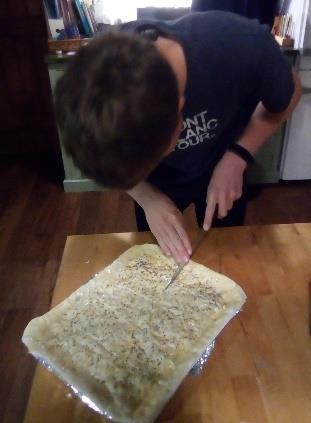
As a team we carried out ‘cultural corner’ sessions which included; language learning, historical and social context, watching the series Warriors and cooking local dishes. These ‘cultural corners’, run by Maddie, gave us a far deeper and meaningful understanding of life in the Balkans.
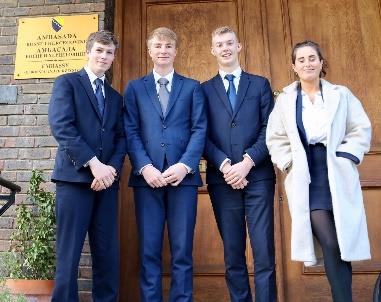
A visit to the Bosnian Embassy in London who gave us support and some in-country contacts. We also attended a Srebrenica memorial at our local Bosnia centre (www.bihcommunityderby.co.uk), giving us more insight and knowledge as to what happened for our visit to the site.
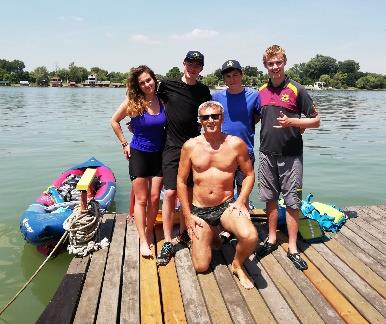
Whilst in the Balkans; we stayed in local accommodation, ate local food and met many warm locals who were delighted to see us adventuring. Somehow we managed to get invited into the Head Coach of Serbia’s national snowboarding team for lunch! As a team we also felt that by conversing with locals, hearing their accounts of history and their political views, we learnt that there are often numerous sides to every story and heard many opinions not widely aired in the western media that we had been reading.
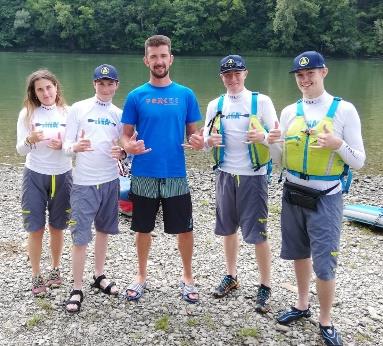
In addition to locals, we had developed some host-nation partners including Miloje, who has an outdoors company called Greenbear (www.greenbear.rs) in the Tara National Park. He joined us for 10km of our journey pointing out local polluting sites and discussing how the river is changing and its impact on tourism. He appeared on Serbian national TV whilst we were there to talk about plastic pollution in the
Tara National Park and Drina river. Other host-nation partners included Milan, who guided us in Belgrade, and Ivan and Faruk from the Balkan Han Hostel in Sarajevo (www.balkanhan.com).
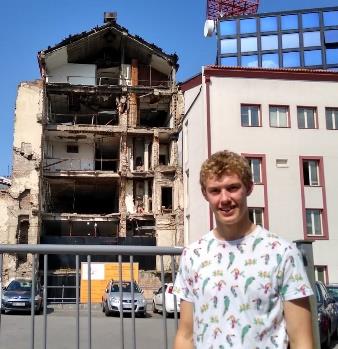
Belgrade; witnessing impacts of the 1999 NATO bombing. 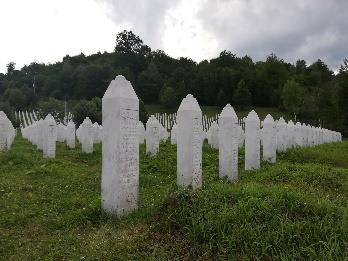
Srebrenica; how many times can the world say ‘never again’? 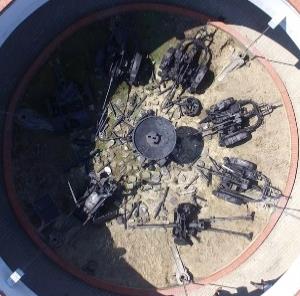
Adasevci; memorial to the 15,393 fallen of the little-known Sremski Front. 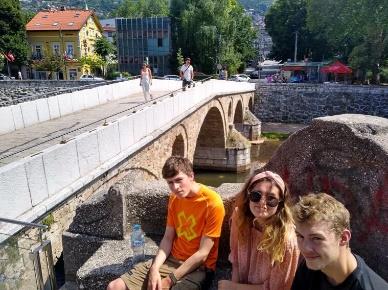
Sarajevo; where WWI began (depending on who you believe).
Lastly, we took time to visit war museums, Yugoslav monuments and sites such as Srebrenica as well as attend tours to enhance our cultural knowledge and learn more about a region with such rich history.
Research summaries
The main activity of this expedition involved collecting data for several individually lead studies. Full write-ups of each study, with analysis of results will be produced by September 2019 but here we provide a brief summary of all the studies conducted and the initial results reached.
Team Cohesion in an Expedition Environment
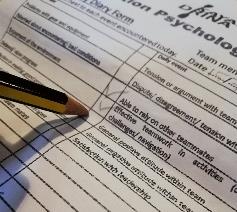
Aim: To better understand impact of specific events on team cohesion.
Context: Physical danger is obvious, but psychological challenges can be harder; enduring hardship, managing fear & coping with monotony, tiredness & isolation.
Method: Expedition and Adventure Psychology Project questionnaires filled in.
Results: Cohesion good (as expected due to non-arduous conditions and group training). Strong correlation between morale & weather (gap between expectation and reality). Shared experience (including, perhaps surprisingly, ‘bad’ e.g. puncture) often improved cohesion despite lower morale.
What’SUP with the Drina?
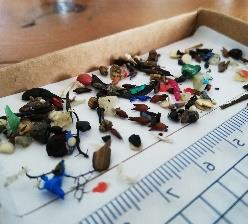
Aim: Research plastic pollution on the Drina, Sava and Danube rivers to compare to UK rivers.
Context: Plastic pollution is a pressing environmental problem. This study compares UK and Balkan river plastic pollution in sediment and fish, using both primary and secondary research data.
Method: Sample and analyse sediment matrix and locally caught fish for microplastics.
Results: Microplastic wasn’t present in the highest sediment sample but increased significantly with distance from source. Surface macroplastic and fish-ingested microplastic was abundant on all rivers.
Invasive Mosquitoes
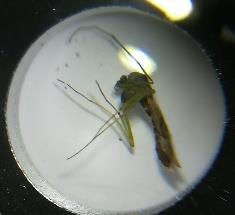
Aim: Study presence of Aedes Albopictus along the Drina, Sava and Danube.Context: Invasive mosquito species of mosquito are moving further north with warmer climes; many are now established in Southern Europe. Aedes Albopictus is reported by EDCC as established in Bosnia but not in bordering Serbia.
Method: Collect using live capture and fan trap, identify species using microscope.
Results: Mosquitoes were trapped and are currently undergoing specie taxonomy. Results to follow.
The Youth of Former Yugoslavia
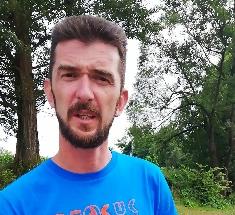
Aim: To better understand impacts of conflict on the youth culture and gain insight as to how the future of Bosnia looks through youthful eyes.
Context: Bosnia is recovering from a devastating ethnically-rooted war. How do youth of three ethnic groups live together and what are their views of the future?
Method: Conduct interviews and focus-groups with young people to make a short documentary.
Results: Some unexpected views, with employment and economy being common themes, from a broad range of interviewees. Results to follow.
Heavy Metals in the Balkans
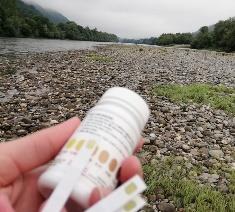
Aim: Research heavy metals pollution in the Balkans. along the Drina, Sava and Danube rivers and its effects on the surrounding environment.
Context: Heavy metal pollution is increasingly becoming a great threat to rivers globally. They are toxic to humans and impact riverine ecosystems.
Method: Record cadmium, mercury and lead levels using both ‘field-bsed’ test strips and subsequent lab-based water analysis. Qualitative environmental surveys used to show effects.
Results: Positive test strip analysis with verification and quantitative results to follow.
The route
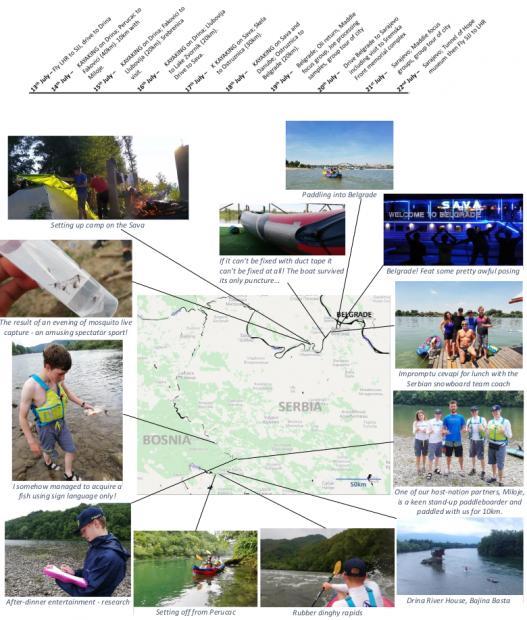
Finance and sponsorship
Summary only (full accounts available on request):
- Total expenditure – £3,390
- Total grant contribution – £2,350
- Total personal contribution – £1,040
In addition to personal contribution, the expedition received grant support and equipment sponsorship, concepts we are relatively new to. These allow more ambitious aims to be achieved, higher quality research to be conducted and enable expedition teams to ‘think big’. We are grateful to those who co-ordinate the funding schemes that enable ventures like this to take place, for ourselves and others, and we would like to say a big “THANK YOU!” to the following:

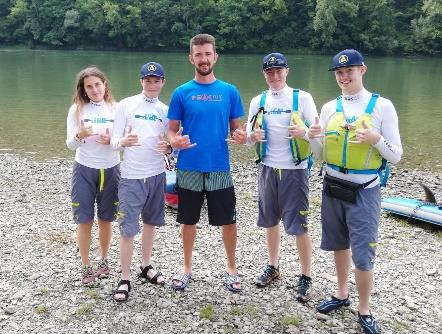
Peak UK (clothing and PFDs) – the perfect set-up for our expedition. Sun, rain, on the water, off the water, in the water (!) these were superb. One of our host-nation partners (a stand-up paddler) was very impressed with our kit so I think we’ve found a new convert to the brand! 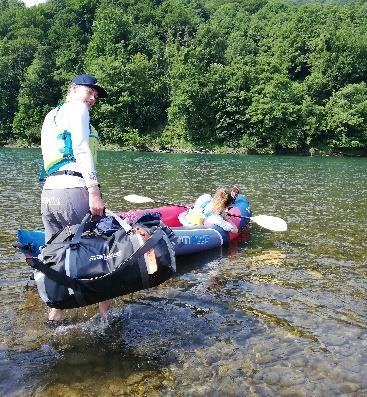
Overboard (dry bags) – these were crucial bits of kit, keeping our kit protected both on and off the water (and even in the water when we punctured the boat!). Their pockets were also really useful for separating wet and dry kit. 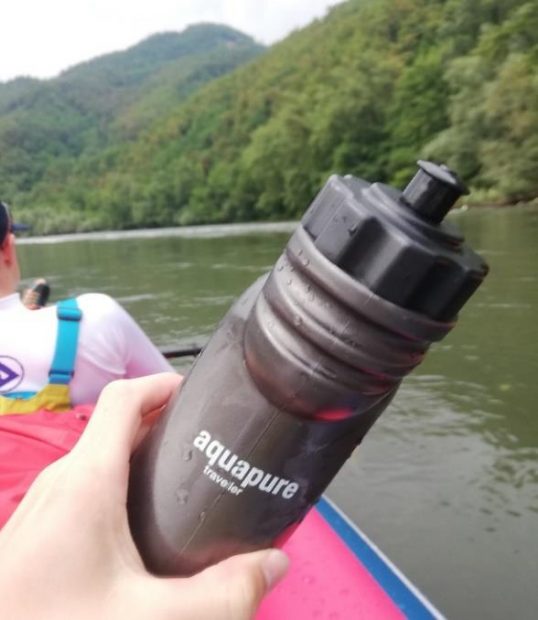
Pure Hydration (aquapure traveller filter bottles) – these were fantastic and allowed us to stay hydrated for the whole trip without carrying heavy bottles. We loved their simplicity and they allowed us to always have cold water – which was greatly appreciated in the hot temperatures. 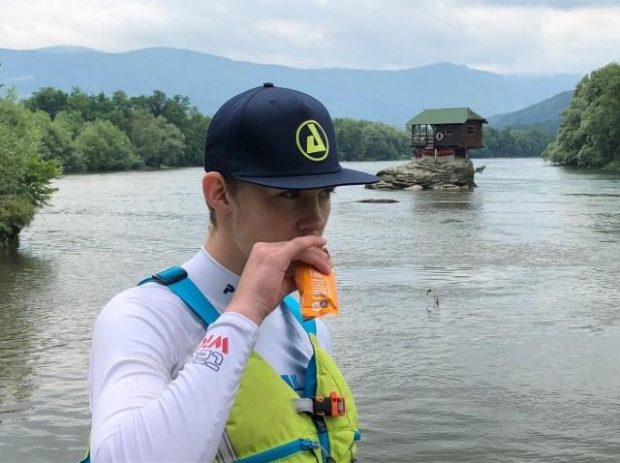
Fulfil (protein bars) – not just delicious but packed with protein to keep us paddling. We had 4 flavours of these and ate 2 each a day. We wish we’d brought more!
Equipment
Combining kayaking, research and time in cities made the expedition rather kit intensive. Whilst on the river our personal kit was limited to a 20 litre bag each. These 4 bags took up one of the (90L) Overboard dry bags, with the group and research equipment taking up the other. We also each took a small duffel bag of clothes and additional research kit for the cities.
Individual
- Buoyancy aid, paddle
- Paddling clothes (2 sets) & shoes
- Filter bottle
- Camping clothes, shoes, towel
- Waterproofs
- Sleeping bag, roll mat
- Bowl & spork
- Wash kit
- Torch
- Passport, phone, cash, local SIM
- Laminated emergency flashcard
- City clothes (2 sets)
Group
- 2x 2-man inflatable kayaks
- Spare (split) paddle
- Kayak foot-pump
- 4-man tent
- Food (resupplies used)
- Stoves, pan, fuel
- 1st aid kit
- Repair kit
- Knife
- Maps & GPS
- Cash (euro/ dinar/ marks)
- 5L water bottle (back-up)
Research
- Drone
- Camera gimbal
- Mosquito fan trap
- 20ml urine sample tubes
- 50ml water sample vials
- 1l water sample bottles
- Ethanol solution
- Heavy metal testing strips
- Density separation apparatus
- Filtration apparatus
- Fish dissection apparatus
- Microscopes (low/ high power)
Food
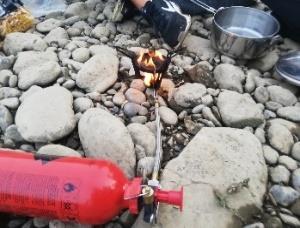
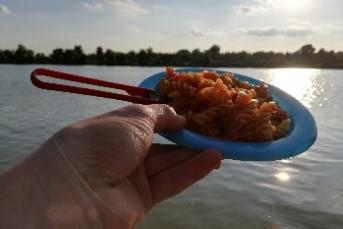
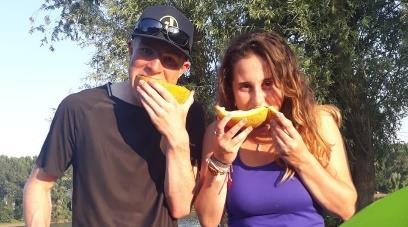
Mmm, melon for starters! 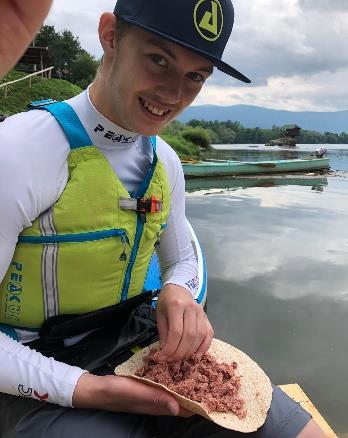
Finn realising despite his dislike of fish, tuna may have been a better option than spam!
| Breakfast | Lunch | Dinner | |
| Day 1 | Cinnamon brioche | Filled wraps | Pasta with chorizo |
| Day 2 | Oatcakes and fruit pots | Noodles | Cous cous and tuna |
| Day 3 | Food | Burek from cafe | Melon with rice and beans |
| Day 4 | Muesli | Filled wraps | Pasta and tomato sauce |
| Day 5 | Cereal bars | Cevapi with a friendly local! | Meal out in Belgrade |
Support crew
Overview
In-country expedition support was provided by one UK person with a vehicle. Primarily this provided transport, intermittent resupply of provisions and contingency for assistance (not needed).
Composition
| Item | Details | Notes |
| Robbie McDermott | UK and International Driving Permit | |
| Renault Traffic minibus (8-seat) | Rental – Sixt Sarajevo £540 plus 40 euro border crossing fee | Fuel approx £1/litre Separate Excess Insurance |
| Medical kit | Small trauma kit for ABCDE/minor issues | |
| General repair kit | Tapes, puncture repair, batteries etc. | |
| Communications / IT / mapping | Mobile phone with local SIM | Whatsapp Maps.me offline mapping Call list for local hospitals |
| Drone | DJI Phantom 3 pro | Filming at arrival points Charging every evening |
| Provision resupply | Charged battery packs, rations, personal kit bags, laptop |
Itinerary
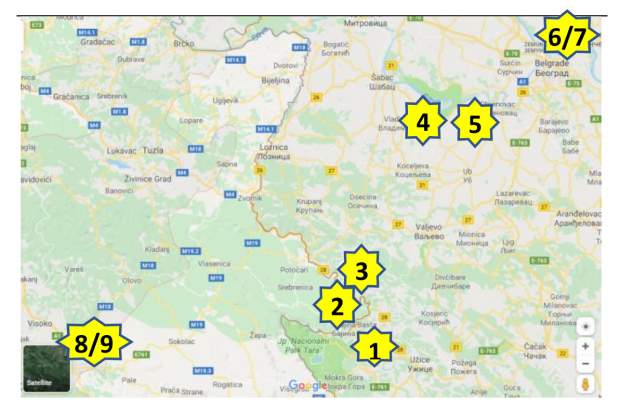
- 1. Dve Lipe, Bajina Basta (hostel)
www.greenbear.rs - 2. Srebrenica Hostel
www.booking.com - 3. Drinska Lasta (hotel)
drinskalasta.rs - 4. Obrenovac (camp)
- 5. Royal II Veliko Polje (hostel)
www.royal-hotel.rs - 6/7. Arka Barka, Belgrade (hostel)
arkabarka.net - 8/9. Balkan Han Sarajevo (hostel)
www.balkanhan.com
Issues
Border Crossings: Bosnia-Serbia crossings sometimes involved in-depth searches taking up to 1 hour. Illegal drugs seemed to be the target. Vehicle documentation (from the rental company) was required.
Police: The team were pulled over by Serbian police and searched for drugs. The manner was professional but potentially intimidating: a friendly, open approach was helpful. Otherwise police were visible but no other contact.
Risk
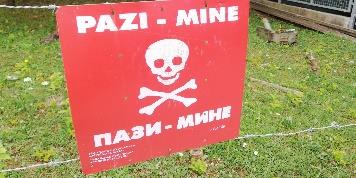
(This is a picture of a museum display in Sarajevo – our route deliberately avoided all marked minefields.)
There were some obvious, and some less obvious, risks attached to this expedition. A comprehensive risk assessment was produced and discussed before departure. This is available on request.
Lessons identified
- null
- Don’t be afraid to talk with locals
- Risk assessments are a group activity
- Don’t short-circuit your research kit – Ollie!
- Make a list of things to photograph
- Carry language crib cards
- Take more snacks!
